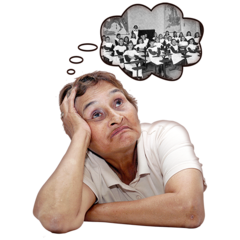Effective voice – advocacy and self advocacy

Examples of rights-based action

We Are Human Too – Campaign Group
We Are Human Too is a campaign group of self-advocates from the North East of England.
In 2019, self-advocates and colleagues from Skills for People, Speaking Up Together at Your Voice Counts, and Sunderland People First came together after they heard about the abuse that happened at Whorlton Hall, in County Durham.
The group have taken various action to try and prevent further abuse happening at Assessment and Treatment Units and in secure hospitals.

Becca Cooper – ‘York People First and Me’
Becca Cooper, chair person of York People First talks about her life, self advocacy and what she thinks about the future.
Becca showed this powerful audio/visual piece at the Learning Disability England’s conference ‘Building Change Together – Actions for Good Lives’ in 2023.

50 Years of Self-advocacy Film – Brighton and Hove Speak Out
To mark 50 years since the first recorded self-advocacy meeting for people with learning disabilities Brighton and Hove made a short film to celebrate this important history.

Lewisham People’s Parliament – Lewisham Speaking Up
Lewisham People’s Parliament is a self-advocacy forum that meet four times a year to focus on a particular theme.
People who join the forum have a chance to say what they want and what they want to change. A report is then written and shared after each meeting that captures what has been said.
The reps then take the views and wishes of the Parliament to decision-makers in a bid to create changes that people want.